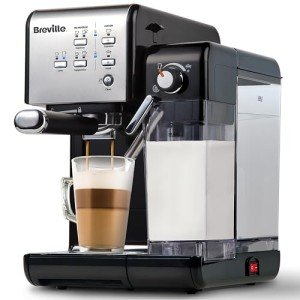Home Use Espresso Machines: A Comprehensive Guide
Espresso machines have actually become a staple in many families as coffee lovers seek to replicate café-quality brews in the comfort of their cooking areas. The rise in appeal has resulted in a diverse market filled with numerous designs, features, and prices. This post intends to supply an informative overview of home use espresso machines, assisting readers navigate their choices effectively.
Comprehending Espresso Machines
Espresso machines work by requiring hot water through finely-ground coffee under high pressure, leading to a focused coffee drink understood as espresso. There are numerous kinds of espresso machines categorized based upon their developing methods and level of automation. The most common types consist of:
- Manual Espresso Machines: These need the user to manage the pressure and water flow, enabling a more hands-on coffee-making experience.
- Semi-Automatic Espresso Machines: These provide automatic control over water pressure, while the user by hand grinds and tamps the coffee.
- Automatic Espresso Machines: With the push of a button, these machines immediately manage the circulation of water, making it much easier to brew espresso with consistent outcomes.
- Super-Automatic Espresso Machines: These all-in-one machines handle grinding, tampering, developing, and even milk frothing, making them perfect for users looking for convenience.
- Pill or Pod Machines: These use pre-packaged coffee pods to create espresso with very little effort, however they limit option in brewing techniques and tastes.
Table: Comparison of Espresso Machine Types
| Type | Control Level | Relieve of Use | Cleaning up Level | Perfect For |
|---|---|---|---|---|
| Manual | User-controlled | Moderate | High | Coffee purists |
| Semi-Automatic | Partial automation | Moderate | Moderate | Home baristas |
| Automatic | Completely automated | Easy | Low | Busy people |
| Super-Automatic | Completely automated | Very simple | Very low | Convenience candidates |
| Capsule/Pod | Completely automated | Really simple | Extremely low | Casual drinkers |
Key Features to Consider
When selecting a home use espresso machine, it's important to think about different functions that can considerably affect the quality of espresso and user experience.
- Pressure: Look for machines that provide at least 9 bars of pressure, as this is thought about optimum for developing espresso.
- Boiler Systems: Single vs. dual boiler systems figure out temperature level stability and the capability to brew espresso and steam milk concurrently.
- Grinder: Integrated grinders permit newly ground coffee, which enhances taste. Think about machines with adjustable grind settings.
- Milk Frother: For those who enjoy cappuccinos and lattes, an integrated steam wand or automatic frother is essential.
- Size and Design: Consider your kitchen area and aesthetic choices. Machines can be found in various sizes, from compact to big setups.
- Cost: Home espresso machines can range from a couple of hundred to a number of thousand dollars, so it's vital to develop a budget before checking out choices.
Pros and Cons of Home Use Espresso Machines
| Pros | Cons |
|---|---|
| Benefit of brewing coffee at home | Initial financial investment can be high |
| Quality of espresso is often remarkable | Requires some ability, particularly with manual machines |
| Capability to try out flavors | Upkeep and cleansing can be labor-intensive |
| Can conserve money in the long run | Not all machines will fit every coffee preference |
Upkeep and Cleaning Tips
Keeping an espresso machine is essential for prolonging its life and guaranteeing consistent brew quality. Here are some useful pointers:
- Regular Descaling: Minerals from water can develop in the machine. Descale every 1-3 months, depending upon water hardness.
- Daily Cleaning: Rinse portafilters, baskets, and steam wands after each use to prevent coffee oils from developing residue.
- Use Filtered Water: This can help minimize mineral accumulation and improve the taste of coffee.
- Change Gaskets and Seals: These components might wear out over time and needs to be changed to maintain pressure and performance.
- Read the Manual: Each machine has particular care guidelines; following these will ensure longevity.
Frequently Asked Questions About Home Use Espresso Machines
Q1: What is the best budget espresso machine?The best budget espresso machine typically depends upon specific requirements, however models like the DeLonghi EC155 or the Breville Bambino are popular among users for supplying fantastic worth. Q2: How long do home espresso machines typically last?With proper upkeep, home espresso machines can last anywhere from 5 to 15 years, depending upon the quality of the machine and frequency of use. Q3: Can I make cappuccinos and lattes with any espresso machine?While most espresso machines can make cappuccinos and lattes, having a reliable
steam wand or frother is vital for attaining the right milk texture.
Q4: Are super-automatic machines worth the investment?For those who focus on benefit and quick developing, super-automatic machines can be worth the investment, though they might do not have some customizability in brew strength and taste. Q5: What types of coffee beans are best for espresso?While Black Espresso Machines contributes, beans labeled as" espresso "blends are typically roasted darker, creating abundant tastes and a creamy texture when brewed.
Buying a home espresso machine can change the day-to-day coffee regimen into something special, raising home brews to café quality. By understanding the different kinds of machines, key features to consider, maintenance requirements, and weighing the
pros and cons, customers can make informed choices that suit their private choices. As the espresso culture continues to grow, no matter the option, every brew can be a delicious experience waiting to be appreciated.

